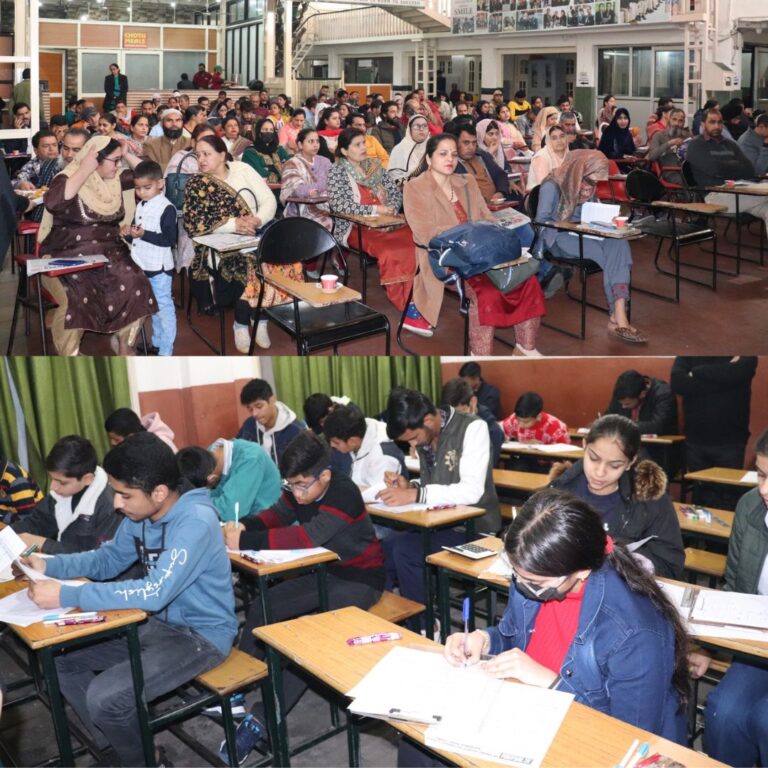
The experience of taking exams is pretty nerve-wracking, regardless of the year you are in. 80% of your marks are determined by your preparation for an exam, but 20% are determined on the day. There is no point in over-preparing for the test because there is no point in under-preparing for it. Getting caught up in stress will only result in you losing marks, which is why it is crucial to follow a process that will keep us stress-free the day leading up to the exam (as well as during reading time)!
Before writing an exam, during the prep, students mostly concentrate on what they should do and how they should do it. Be it regarding their study schedule or the way they should study. But what students usually miss out on is what NOT to do. That is the place students should concentrate more on. Here are some common mistakes students usually commit during exams:
- Not reading the question properly

Read each question carefully a few times – sometimes questions can seem confusing at first, but after a few readings, they become easier to understand. It is best to pay close attention to your initial thoughts and reactions when responding to a question. Many times, we change our minds after having responded initially, when in reality, the first response was correct!

- Panicking
Panicking is a perfectly natural reaction to a difficult situation such as an exam. We need a little bit of stress, or else we simply would never put in any effort for anything! The problem is when this stress gets totally out of hand and you start freaking out.
Once you get into the exam hall and have a chance to sit down and settle, take a few deep breaths in and out. When we get stressed, we change the way we breathe. Believe it or not, by doing a few simple breathing exercises, you’ll get more oxygen flowing to your brain, which allows you to think more clearly! Awesome! A pretty simple way to do this is to put your hands on your stomach, and when you breathe out make sure your shoulders stay still and your stomach moves out.
- Failing to plan time allotment to different questions
One of the first mistakes we make in the exam room is spending too much time writing the wrong question. This might happen when you have a lot of material in your head, especially on one topic, but when you check the paper, you discover a question with only a very minimal mark allocation to that area – we rationalize to ourselves: “Are you serious, I spent 2 weeks revising this! You forced me to study it, and now you’re going to read about it!” We wind up devoting far more time than necessary to a question that doesn’t yield many points!
When an examiner creates a test, they consider how much time – to the minute – you should spend on each question. If you can figure out that formula, you’ll have a good idea of how much time to spend on each question. Minute marks are used in this calculation. For example, if you have a 2-hour paper (120 minutes) to complete with 20 marks, you would spend 6 minutes on each mark. Work out how long each question should take you at the start of an exam – if you keep to it, you’ll get to the conclusion of the paper, and if you’ve saved time here and there, you can go back and put material into your replies.
- Basic spelling errors or grammar mistakes

There’s no doubt that it’s a lot harder without a spell checker. However, you must be able to write basic English well, without spelling or grammatical mistakes. Verify the logical flow of what you have written at the end.
- Not having a plan for how to solve the paper
Make sure you know how many questions there are and how much time you have before you start writing. Your time for each question will be roughly determined by this. Each question should not take more than that amount of time. If you have time left over, you can always go back and attempt each question again.

- Last-minute cramming
How many times have you seen folks standing outside an exam room poring over their notes, cramming every last bit of information into their heads? The last-minute cram may boost our confidence, but it introduces two serious issues.
To begin, imagine you were looking over all of your notes outside the exam room before being allowed to enter, and someone asked you a question regarding a topic on which you didn’t have notes. You are unlikely to thank them for graciously pointing out where your notes are lacking – instead, with just minutes before the exam, your most likely reaction is to panic and obsess about the prospective consequences! In certain circumstances
Second, our brain remembers information by employing two basic functions: primacy and recency. The first thing we are told is called primacy, and the last thing we are told is called recency. When you cram for a certain topic outside of the exam hall, you are flooding the most recent area of your memory and are more likely to retain only that portion of the subject. If you feel the need for some notes soon before the exam, try using one A4 sheet of trigger phrases from the entire topic or course. This way, you’re not overburdening your brain with knowledge, you get a solid picture of what’s crucial, and you don’t jeopardize any aspects of the subject.
These are a few common mistakes that students commit while writing the exams and while prepping for them. If these are kept in mind well before time, then the students would be completely ready for the exams.

Every child at SP Smart School is given a process-driven system in which he or she is stimulated for a specific component such as memorization, comprehension, learning, reproducing, discovery, and invention. – The teaching-learning process in the SP Smart Schooling System is a well-defined process for both teachers and students, where every step is designed to be audited and can be upgraded and modified as needed with the help of technology. Additionally, at SP Smart School, we guide and prepare our students for competitive exams such as NEET, CUET, CLAT, etc. -This Analysis tool directly eliminates the need for any other external agency or process, such as private coaching, tuition, and so on.
To Know more about SP Smart School, Click Here!





Pingback: Trusted, Proactive & Effective Schooling in Jammu